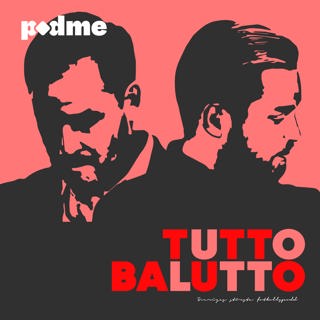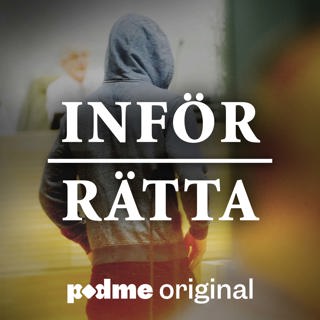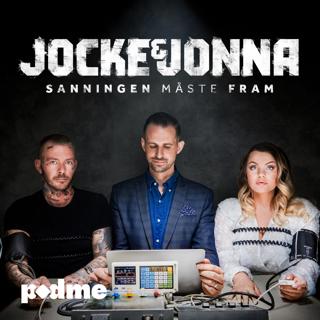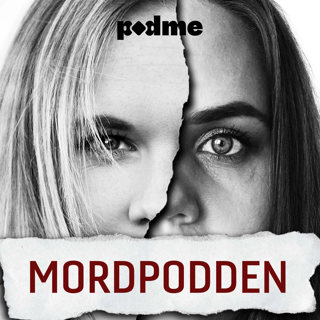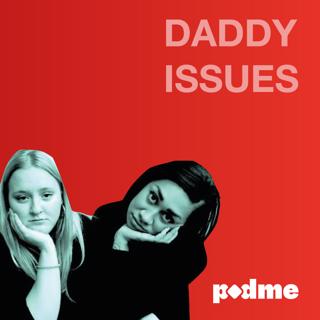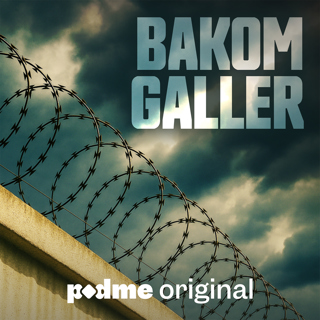
Derek McCormack Christmas Special (rebroadcast)
Derek McCormack is a small town pervert and the author of The Well-Dressed Wound and Castle F*ggot, both published by Semiotext(e). His most recent book is Judy Blame's Obituary. This collection brings together for the first time McCormack's fashion journalism. He writes about and interviews fashion figures that fascinate him, tracing the ways they inspire and inhabit his novels. The result is a sort of memoir in essays: as he writes, "My tribute to [Judy] Blame is about him and about me—there are lots of my own tales woven in with the topics I touch on. The writing here is a sort of autobiography, a life seen through a scrim, or a life as a scrim—my moire mémoire." Judy Blame's Obituary contains twenty years' worth of reminiscences, reviews of fashion shows and books, interviews with writers about fashion, and interviews with fashion designers about writing. He talks to Nicolas Ghesquière about perfume, and to Edmund White about which perfume he wore as a young f*g in New York City. He inspects the clothes that Kathy Acker left behind when she died, and he summons the spirit of Margiela in a literary seance. He traces the history of sequins, then recounts the cursed story of Vera West, the costume designer who dressed the Bride of Frankenstein. These pieces were all previously published, some in Artforum, some in The Believer, and some in underground publications like Werewolf Express—what binds them together is a sense that though fashion victimizes us, this victimization is sometimes a sort of salvation. In this Wake Island holiday special we talk about: my butthole, revealing the real Derek through writing about fashion, turning our ashes into jewelry, clothes as ectoplasm, Dodie Bellamy’s “Kathy Forest,” Vivienne Westwood’s imperial years, an outfit based on an advent calendar, sequins implantations, Margiela, being a small town pervert from Peterborough, our hometowns vs the hometowns of our minds, fistulas, Guy Maddin, the sadomasochistic beauty of being a writer, and we investigate - why does fashion abandon us? Judy Blame's Obituary: Writings on Fashion and Death here. Theme music by Joseph E. Martinez of Junius Additional music by TRG Banks Follow us on social at: Twitter: @WakeIslandPod Instagram: @wakeislandpod David's Twitter: @raviddice Derek's Twitter: @HillbillyBijoux Derek's IG: @derek_mccormack
25 Dec 20241h 59min

Chaos and Disenchantment: Berlin Wall book launch w/ David Leo Rice & B.R. Yeager
In this season-ending episode of Wake Island, guest co-host BR Yeager—author of Negative Space and Burn You the Fuck Alive—joins us for a hall of mirrors conversation. Together, we get into David Leo Rice’s latest book, The Berlin Wall, using it as a lens to examine violent cusp figures like Anders Behring Breivik, Timothy McVeigh, and the Columbine shooters. We take a gut check for 2024, exploring the height of disenchantment that drives us to embrace disharmony in a world where consensus feels out of reach and history feels at once stuck in place and spiraling out of control. Along the way, we nosedive through historical inflection portals and terroristic moments that warp our perception of reality and linear time. Europe, 2020. Some claim that the Berlin Wall, once a living entity, is coming back together, its scattered pieces seeking reunion on the far side of history. The European continent trembles on the edge of total war, either in reality or deep in its own feverish imagination. Part present-tense apocalyptic satire and part neo-medieval phantasmagoria, David Leo Rice’s new novel presents an alternate history of the present where the Internet has become a territory unto itself and unstable factions obsessed with nationalism, liberalism, and romanticism drive one another toward a clash that could turn the very notions of refuge and culture into the ravings of a lunatic. With The Berlin Wall, David Leo Rice has produced a text that feels totally sui generis: he has achieved the rarest of writerly feats and become his own genre. No other writer I know embodies simultaneity so cleanly or marries the aesthetics of gnosticism, decadence and pop-culture with a clarity of prose. If The New House was a bildungsroman from alternative dimensions, The Berlin Wall is an allegorical history of the present. It is as if Rice presents an archaeology of time, dusting off human chronology to reveal the multiplicative source of life in all its writhing self-contained logic beneath. He charts how forms form and the way the gross larval simplicity of fascism invades and reproduces in bodies. — Thomas Kendall, author of The Autodidacts and How I Killed the Universal Man
17 Sep 20241h 36min

Home Haunts with Dennis Cooper
Daddy’s back. ROOM TEMPERATURE, haunted houses, video games, childhood memories, publishing with an indie press, supportive teachers, Flunker, and more Dennis Cooper's Blog. FLUNKER, six fictions, 124 pp., c/o Amphetamine Sulphate: orders open. UK/Europe: orders open. SOCIAL:Twitter: @WakeIslandPod Instagram: @wakeislandpodDavid's Twitter: @raviddiceDavid's site: raviddice.com
14 Aug 20241h

Grave Desire with Steve Finbow
In this episode with Steve Finbow, we tease out the point at which a body ceases to be considered a person and chart the development of trauma over time, tracing the fine line between disgust and desire. We get into the motivations behind necrophilia and corpse desecration, examining the boundaries of how taboos can become normalized. We discuss the role of the soul or consciousness in elevating necrophilia to a mythic realm and the pursuit of the death drive in objects of beauty. We also consider art as both a method and a way of life, and whether societal breakdowns due to acceleration will increase instances of necrophilia in the future. Necrophilia has shadowed humanity throughout its existence, from ancient Egypt, to the Moche culture of Peru, the exploits of the renowned Vampire of Montparnasse, the sexual murders of the Weimar Republic, through to serial killers such as Ted Bundy and Jeffrey Dahmer. This new edition of Grave Desire – with artworks by Karolina Urbaniak – delves unflinchingly into the myths, art and practices surrounding this taboo subject. Finding Juliet’s catatonic body and believing she had poisoned herself, it could have crossed Romeo’s mind to act out the unthinkable. Maybe Juliet, seeing Romeo’s corpse, considered a little sexual frottage before she stabbed herself with the phallic dagger. Repulsive yet real, disgusting and disturbing, this is an erotic book of the dead. Buy Grave Desire from Infinity Land Press. Steve Finbow’s non-fiction includes Allen Ginsberg: Critical Lives (Reaktion), Notes from the Sick Room (Repeater), Death Mort Tod (Infinity Land Press), The Mindshaft (Amphetamine Sulphate), Polaroid Haiku – with Jukka Siikala (Infinity Land Press), The Life of the Artist Niccolò di Mescolano (Alberegno Press). Sanbashi – a biography of the postwar Japanese photographer Toru Nakagami – will be published in 2024. SOCIALS: Twitter: @WakeIslandPod Instagram: @wakeislandpod David Leo Rice: www.raviddice.com David's Twitter: @raviddice
31 Juli 202458min

Guilty Creatures with Mikita Brottman
From the critically acclaimed author dubbed “one of today’s finest practitioners of nonfiction” (The New York Times Book Review), a breathless true crime tale of sex, religion, and murder in the deep South. Mike and Denise Williams had a tight knit, seemingly unbreakable bond with childhood friends, Brian and Kathy Winchester. The two couples were devout, hardworking Baptists who lived perfect, quintessentially Southern lives. Their friendship seemed ironclad. That is, until December 16, 2000, when Denise’s husband Mike disappeared while duck hunting on Lake Seminole. After no body was found, everyone assumed that Mike had drowned in a tragic accident, his body eaten by alligators. But things took an unexpected turn when, within five years of Mike’s disappearance, Brian Winchester divorced his wife and married Denise. Their surprising romance set tongues talking. People began wondering how long they had been a couple, and whether they had anything to do with Mike’s death. It took another twelve years for the truth to come out—and when it did, it was unimaginable. Now, the full, shocking story is revealed by Mikita Brottman, acclaimed true crime writer of the “enthralling” (San Francisco Book Review) An Unexplained Death. Through tenacious research and clear-eyed prose, she probes the psychology of a couple who killed and explores how it feels to live for eighteen years with murder on the soul. A fascinating page-turner of modern noir, Guilty Creatures is destined to become an instant true crime classic. Mikita Brottman is a writer and psychoanalyst living in Baltimore, Maryland. Her most recent book, An Unexplained Death, was shortlisted for the Gold Dagger Award for nonfiction by the Crime Writers Association of the UK. She has a DPhil from Oxford University and is a professor of literature at the Maryland Institute College of Art. SOCIALS: Twitter: @WakeIslandPod Instagram: @wakeislandpod David Leo Rice: www.raviddice.com David's Twitter: @raviddice
15 Juli 20241h 16min

The Sleep of Reason with Matt Lee
Fear. Disgust. Pity. The cripple evokes our basest human emotions—as does the monster. Told in lyric fragments, The Backwards Hand traces Matt Lee’s experience living in the United States for more than thirty years with a rare congenital defect. Weaving in historical research and pop culture references, Lee dissects how the disabled body has been conflated with impurity, worthlessness, and evil. His voice swirls amid those of artists, criminals, activists, and philosophers. With a particular focus on horror films, Lee juxtaposes portrayals of fictitious monsters with the real-life atrocities of the Nazi regime and the American eugenics movement. Through examining his struggles with physical and mental health, Lee confronts his own beliefs about monstrosity and searches for atonement as he awaits the birth of his son. The Backwards Hand interrogates what it means to be a cripple in a predominantly ableist society, deconstructing how perceptions of disability are—and are not—reflected in art and media. In this episode with Matt Lee, we explore the destabilizing effects of an acid experience, delve into Goya’s creation of his most otherworldly works after becoming deaf, and Tennessee Williams’s deep fear of asylums. We discuss the concept of self-imposed exile within the disabled community and dissect what truly makes a monster. We examine the works of photographers like Diane Arbus and Robert Andy Coombs. We also reflect on the limits of empathy, consider if we are the greatest source of danger to others, and confront childhood terrors and the complexities of fatherhood. MATT LEE is the author of Crisis Actor. His short fiction and nonfiction have appeared in numerous venues online and in print. He has also written and produced work for the stage, including an adaptation of Mary Shelley’s Frankenstein. He is a cofounder and editor of the magazine Ligeia. Matt lives in Maryland with his wife and son. SOCIAL: Twitter: @WakeIslandPod Instagram: @wakeislandpod David's Twitter: @raviddice
2 Juli 20241h 29min

CHRIS ZEISCHEGG: ON ART AND UNBECOMING
Christopher Zeischegg is a writer and filmmaker who spent eight years working in the adult industry as performer, Danny Wylde. He is the author of The Magician, Body to Job, The Wolves that Live in Skin and Space, and Come to My Brother. His latest book CREATION spans a decade’s worth of writing on art, violence, sex work, and friendship. Acclaimed author, Christopher Zeischegg, confronts his past narratives, cruelty in auto-fiction, pornographic ambivalence, and transformative relationship to artist, Luka Fisher. "Creation is a stunning new collection by one of the most exciting living writers. Reading a Christopher Zeischegg book is like stepping into a dream in which anything can happen—his particular combination of sex, death, beauty, and horror often feels downright transcendent." —Chelsea Hodson, author of Tonight I'm Someone Else Theme music by Joseph E. Martinez of Junius SOCIALS: Twitter: @WakeIslandPod Instagram: @wakeislandpod David Leo Rice: www.raviddice.com Chris's Twitter: @chriszeischegg Chris's Instagram: @chriszeischegg David's Twitter: @raviddice
20 Mars 20241h 2min

The World Below with David Peak
Last year, David Peak released "The World Below," a midwestern gothic tale intertwining two rival families whose animosity sparks amidst a ritualistic occult murder mystery, amplified by heroic doses of LSD. Published by Apocalypse Party, a rapidly acclaimed purveyor of top-tier horror, "The World Below" is a testament to their commitment to darkness. This book seamlessly blends atmosphere and narrative, achieving the rare feat of being both immersive and a page-turner. David Peak's work aligns him with horror luminaries like Brian Evenson, Clive Barker, and Poppy Z Brite. In this episode, we delve into reading as a psychedelic act, exploring how family feuds in small towns can evolve into an art form. We also dissect the drama and artistry of Jerry Springer, touch on the American mythology surrounding the West Memphis Three, and revel in the exhilaration of death metal and films like "Mandy." "A brilliant and flayed slice of Midwest gothic. While one might find traces of Poppy Z. Brite or Michael McDowell here, The World Below is wholly its own beast. Peak laces the classic premise of feuding, cursed families with high-potency LSD, forming something fresh, potent, and filled with ache." -B.R. Yeager, author of Negative Space "Violent, noir-soaked horror infuses every page of David Peak's astonishing The World Below, coiling like a serpent around love: first and lost loves, love of family and the land, love of darkness and blood. Peak mixes the most primal of emotions like an alchemist, leaving every reader transformed." -Livia Llewellyn, author of Furnace SOCIAL: Twitter: @WakeIslandPod Instagram: @wakeislandpod David's Twitter: @raviddice
15 Nov 20231h 9min



